
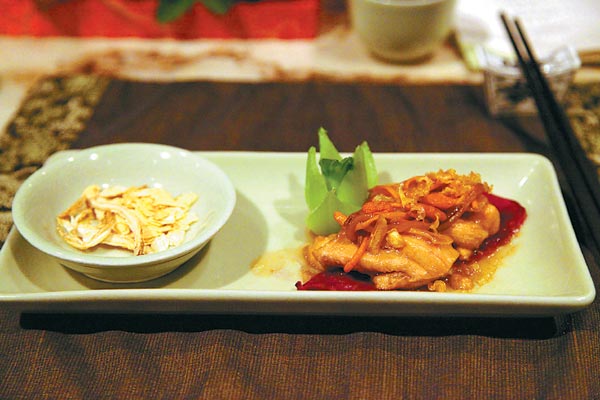 |
|
Steamed chicken with danggui, ginseng, cordyceps and brown mushroom. Photos by Fan Zhen / China Daily |
These are not the sort of herbs we use to flavor dishes in Western cooking. The familiar flavors such as parsley, basil and thyme were all gone, and there was not even the familiarity of chilli, garlic and coriander. In their place were baizhi, ginseng, heshouwu.
This was one dining experience that was like falling through the other side of the herbal world, somewhere unfamiliar and strange, where my taste buds were put through quite a challenge.
Trying to identify different flavors - flavors never before encountered - really gave my palate a workout. It was great to be able to taste an entirely different culinary world. While I would certainly eat here again, I think I'll stick to parsley, sage, and rosemary in my own kitchen.
Huang Ting is artfully decorated in the style of ancient hutong homes, with a specialized tea counter, herbal storage, stone lions, original marble and wooden fixtures, and private rooms off the main dining room for entertaining parties as large as 24.
We are welcomed with cups of babao cha (Eight Treasures Tea) that were sweet, yet thick and grounded and made from eight different ingredients, we were told.
Executive Chef Xu Chiping explains he has used TCM to improve the balance and nutrition of his menu. Any nervousness we felt was assuaged when he said there were no animal parts used, nor was this menu some wild foray into food as medicine.
The whole atmosphere has a feel of authenticity coupled with anticipation: What will these herbal dishes be like? The setting brackets our thoughts on traditional Chinese living and we imagine we are in for something very different.
The six-course tasting menu begins with marinated dates with heshouwu, a herb that is meant to aid digestion. It is a clever way to begin, preparing us for the feast ahead as the following courses tantalize and intrigue our Western taste buds.
The steamed chicken is a textual feast, incorporating crunchy danggui, tart ginseng, cordyceps, soft brown mushrooms, sweet, plump wolfberries (also known as goji berries, an antioxidant-rich super food) and succulent chicken thigh.
One bite of this colorful, multi-layered palate teaser is in itself a completely new experience. Sweet, salty, and both homey and unfamiliar, this dish was a standout. Who knew steamed chicken could be so transformed? Those on a low-fat diet will rejoice.
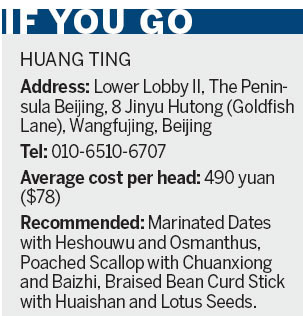
We hear so much about traditional Chinese medicine in the West, but there is little chance to experience it.
Having the opportunity to get to know their flavors, see their shapes, learn where they come from, and hear from Xu about his childhood days of drinking the ghastly (but healthy) herbal soup prepared by his grandmother, was the perfect introduction to Chinese herbal cooking.
For Xu, this new autumn menu is a chance to introduce TCM herbs to both Western and Chinese diners in a holistic but natural way. We don't get the feeling we are eating medicine - instead, we feel energized, refreshed and satisfied at the end of the meal.
Huang Ting's new menu is ambitious, but they have paid a lot of attention to detail, which means their quest for perfection is not an overreach.
And I am not overreaching when I say their mushroom parcels with black truffle are a religious experience. Do not miss them.
Contact the writer at callie@chinadaily.com.cn.

2013 Chinese New Year |

Hidden dragons, crouching tigers |
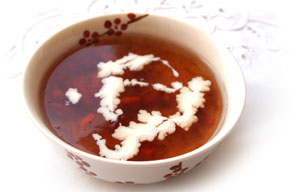
Soap beans, silver ears and peach gum |

Special:Winter Solstice |
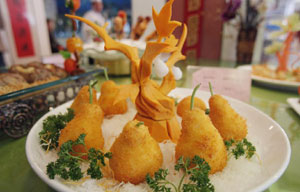
'Potato festival' kicks off in Shandong |

Mario themed restaurant opens in Tianjin |

HK carries out avian influenza tests on imported chicken |
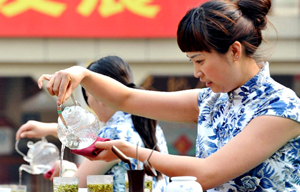
2013 China Tea Conference kicks off in Zhejiang |